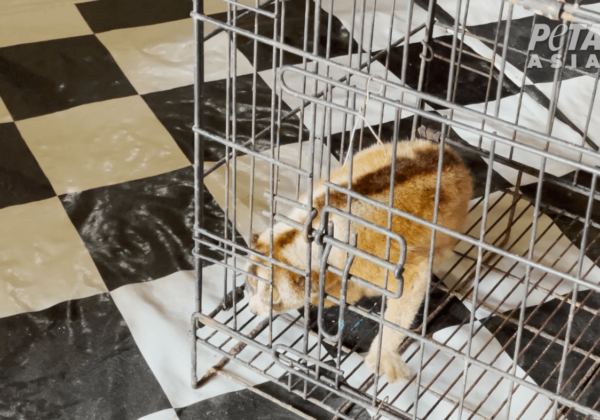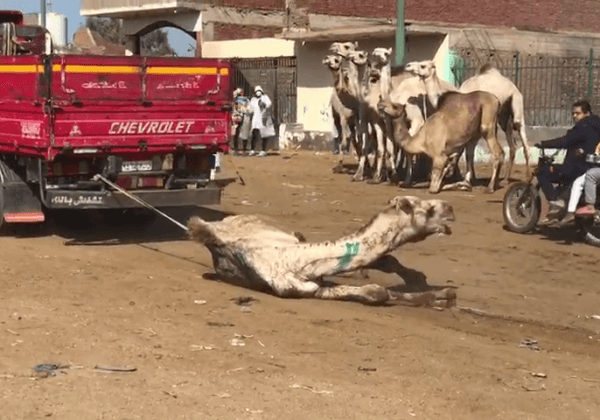Authorities Crack Down on Bird Abusers
It’s easy to become a bit cynical about expecting the government to take real action, particularly when it comes to the issue of animal welfare. But Taiwanese officials have come down hard on cruel and illegal pigeon-racing clubs. The arrests and seizure of property come on the heels of a five-month People for the Ethical Treatment of Animals (PETA) U.S. investigation into this industry—the most extreme, most deadly, and most crime-ridden in the world.
PETA US undercover investigators documented a grueling system of races over the open ocean and the highest racing death rates in the world. They met with top pigeon-racing officials, observed pigeon racers training birds in three cities, visited pigeon lofts, attended the shipping night of a race in the largest club, toured a ship that transports pigeons for races and watched the loading, and recorded video of bird releases during races in the South China Sea.
Make no mistake about it: Pigeon racing is a deadly pastime—for the birds. Young pigeons are transported out to sea in cargo ships and released in all weather extremes, regardless of the danger. Hundreds of kilometers off shore, the birds are forced to try to make their way home with no land in sight.
These extreme conditions lead to the highest death rates for pigeons in the world. Pigeons often fly low over the water to avoid as much wind as possible, and thousands of young birds die during each race when they are swept underwater by waves or succumb to exhaustion. In one race that PETA US observed, the pigeons were released into typhoon-force winds; 85 percent of them failed to return and are presumed to have perished. These aren’t races—they are massacres.
Investigators gathered race results and recorded top club officers and racers admitting to routine massive casualty totals from the ocean races. Participants also admitted to illegal gambling and tax evasion. With billions of Taiwanese dollars at stake each year, it’s no wonder that organized crime plays a big role in these clubs.
In Taiwan, birds race for one seven-race series when they are between 4 ½ and 6 months old. The president of the largest racing club in Taiwan told the investigators that the birds only get one chance—if they fail to return by a designated time, they are killed. So birds who manage to survive the ocean races but don’t return in the qualifying time likely will have their necks snapped.
These birds don’t deserve such a fate. Besides being loyal mates and nurturing parents, pigeons are personable and extremely smart. They can learn abstract numerical rules—something only humans and other primates were thought to do—and researchers have found that they can learn the letters of the English alphabet quite easily.
Taiwanese officials are to be commended for cracking down on bird abusers, and citizens should take heart that cruelty to animals is being taken with the seriousness that it deserves.
By Jason Baker









